In 2023, momentum continued to build around Indonesia’s transition towards a more sustainable and net zero economy. The country reached a key milestone with the launch of JETP Comprehensive Investment and Policy Plan (CIPP) in November, one year after its Just Energy Transition Partnership (JETP) and Energy Transition Mechanism (ETM) Country Platform initiatives had been announced. Positioned as a living document that reflects national priorities vis-à-vis evolving climate commitments under the JETP, the CIPP maps out decarbonization pathways for Indonesia’s power sector, outlines a just transition plan, and serves as the basis to drive the USD 20 billion in JETP financing towards specific projects.
CPI actively supported the formulation of this transition plan in many aspects. In addition to our role as a knowledge partner to PT Sarana Multi Infrastruktur (PT SMI) in managing the ETM Country Platform, we provided analyses and editorial support to the JETP Secretariat and its Finance Working Group, resulting among other things in the inclusion of “just” costs of energy transition in the CIPP’s finance chapter.
In another key area of sustainable finance, CPI is continuing its work on establishing a sustainable banking hub in Indonesia. This hub is envisioned as a collaborative platform involving financial institutions that fosters more conducive investment ecosystem for the development of innovative financing instruments, as well as de-risking mechanisms for energy efficiency projects. To this end, CPI assessed the net-zero alignment of Indonesia’s power sector finance, the country’s transition taxonomy, and opportunities to scale up climate-aligned investments.
Below is a summary of CPI Indonesia’s work on climate finance tracking, sustainable finance, and just energy transition, as well as what is underway in 2024.
CLIMATE FINANCE TRACKING
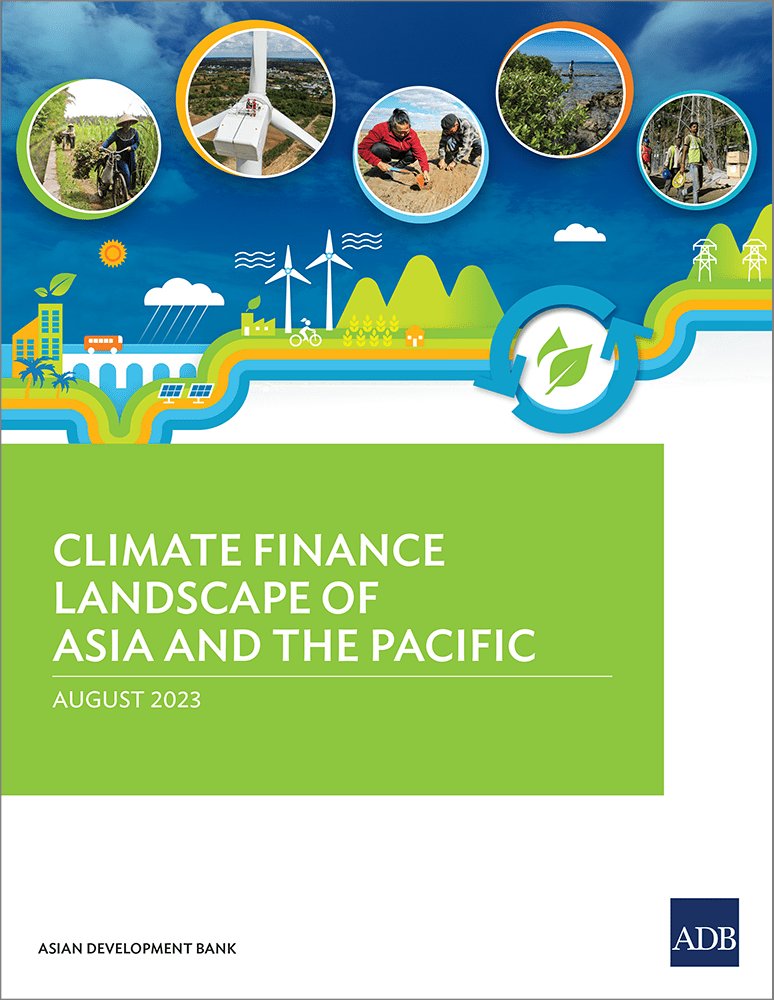
Climate Finance Landscape of Asia and the Pacific
Developed for the Asian Development Bank, CPI assessed the climate finance landscape in Asia and the Pacific, with disaggregated data for its five subregions: Central and West Asia, East Asia, South Asia, Southeast Asia, and the Pacific. To create a comprehensive landscape, we traced climate finance flows by source (e.g., public and private), financing instrument (e.g., loans and grants), and use of funds (e.g., by adaptation and mitigation purpose, as well as by sector). We also identified the gaps in climate finance in the region.
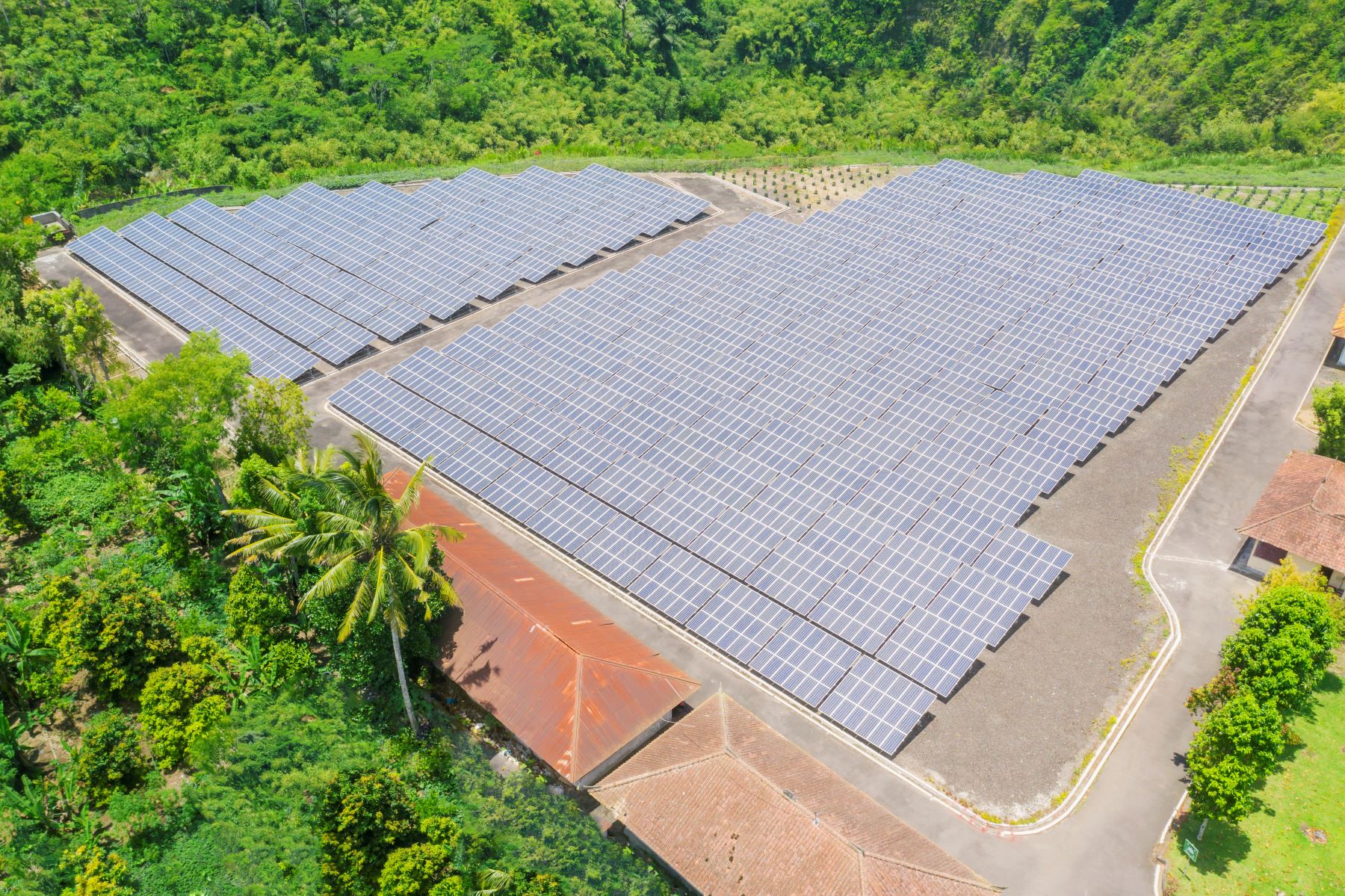
Indonesia Landscape of Climate Finance: Financing Indonesia Energy Transition
In this briefing paper published by the Institute for Essential Services Reform, we examined the landscape of climate finance in Indonesia, highlighting the issues of ongoing coal finance and the lack of financial instruments to accelerate early coal retirement, as well as ways to make the country’s green taxonomy a more effective tool for mobilizing private climate finance.
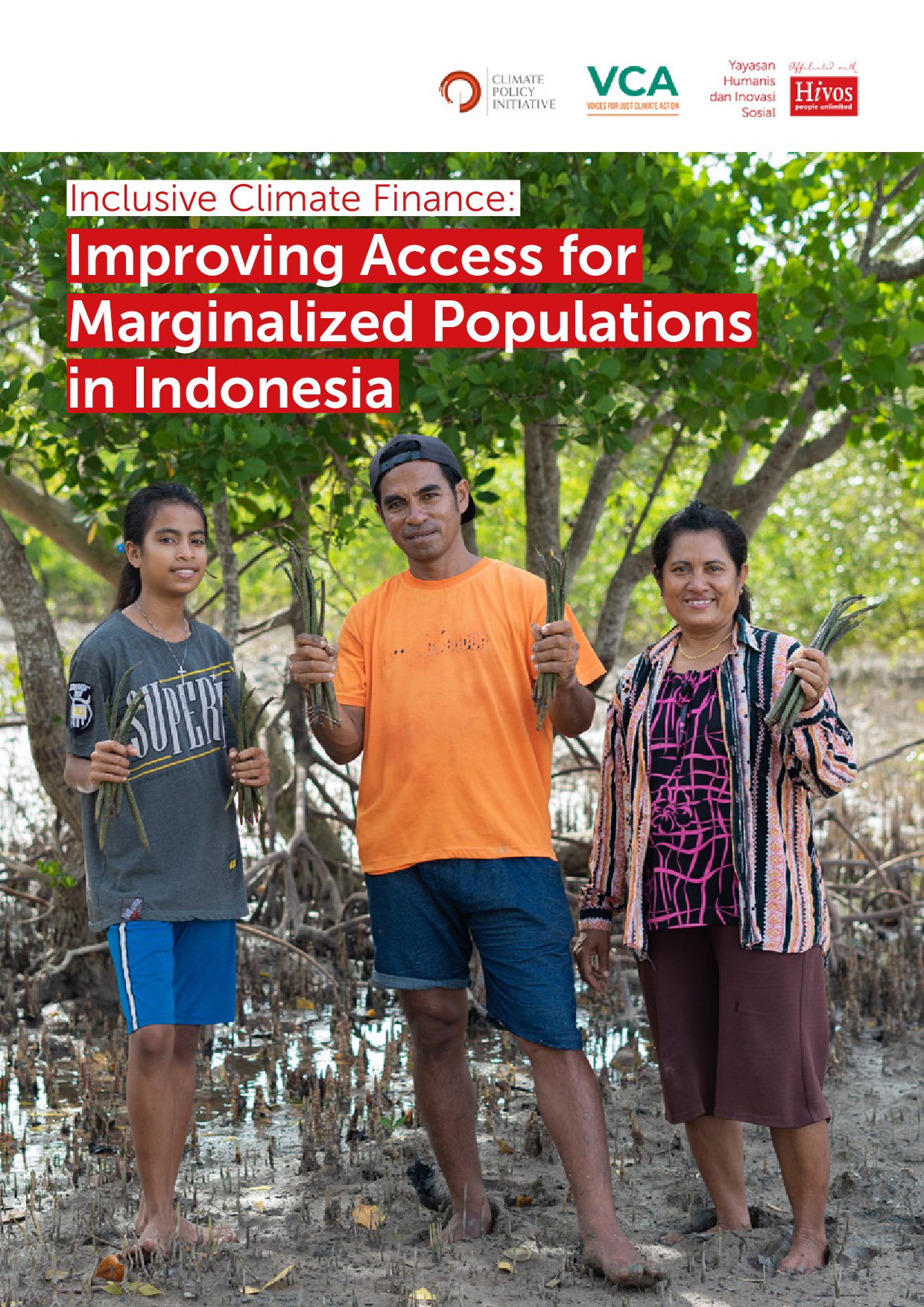
Inclusive Climate Finance: Improving Access for Marginalized Populations in Indonesia
Developed in partnership with Hivos Indonesia, CPI assessed Indonesia’s climate finance landscape and explored ways to mobilize investments that benefit marginalized populations. The report includes assessments of financing solutions from public, private, and philanthropic funding sources, and explores potential enablers to mobilize multiple funding sources at scale.
SUSTAINABLE FINANCE

Climate-Aligned Investments in Indonesia’s Financial Sector
Based on our finding that contribution from public and private finance institutions only constitues 15% of climate finance needed to meet Indonesia’s net-zero goals, this report identifies opportunities to further scale up climate-aligned investment, including by mainstreaming the principle of sustainability in investment flows.
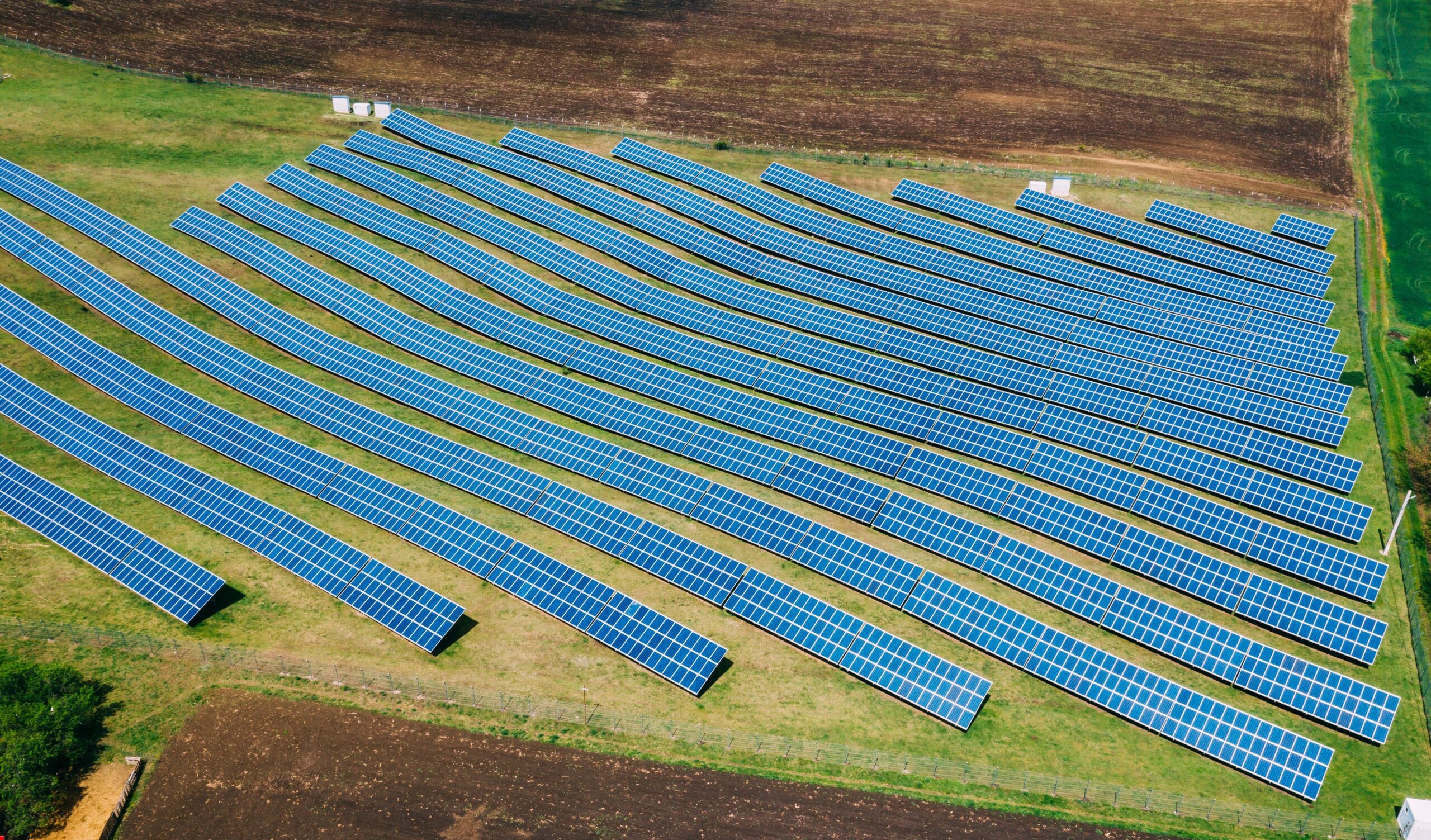
The Net Zero Alignment of Indonesia’s Power Sector Finance
This report examines renewable energy capacity and financing gaps in the power sector, as well as opportunities to better align power sector finance with Indonesia’s commitment to achieve net zero emissions by 2060.

The Next Phase of Indonesia Green Taxonomy: Transition Finance to Support Decarbonization
Indonesia must decarbonize rapidly, while maintaining economic resilience. This report outlines key considerations and steps to adopt transition finance, and how to deal with coal phase-out, in the next iteration of the Indonesia Green Taxonomy, now named Indonesia Taxonomy for Sustainable Finance.
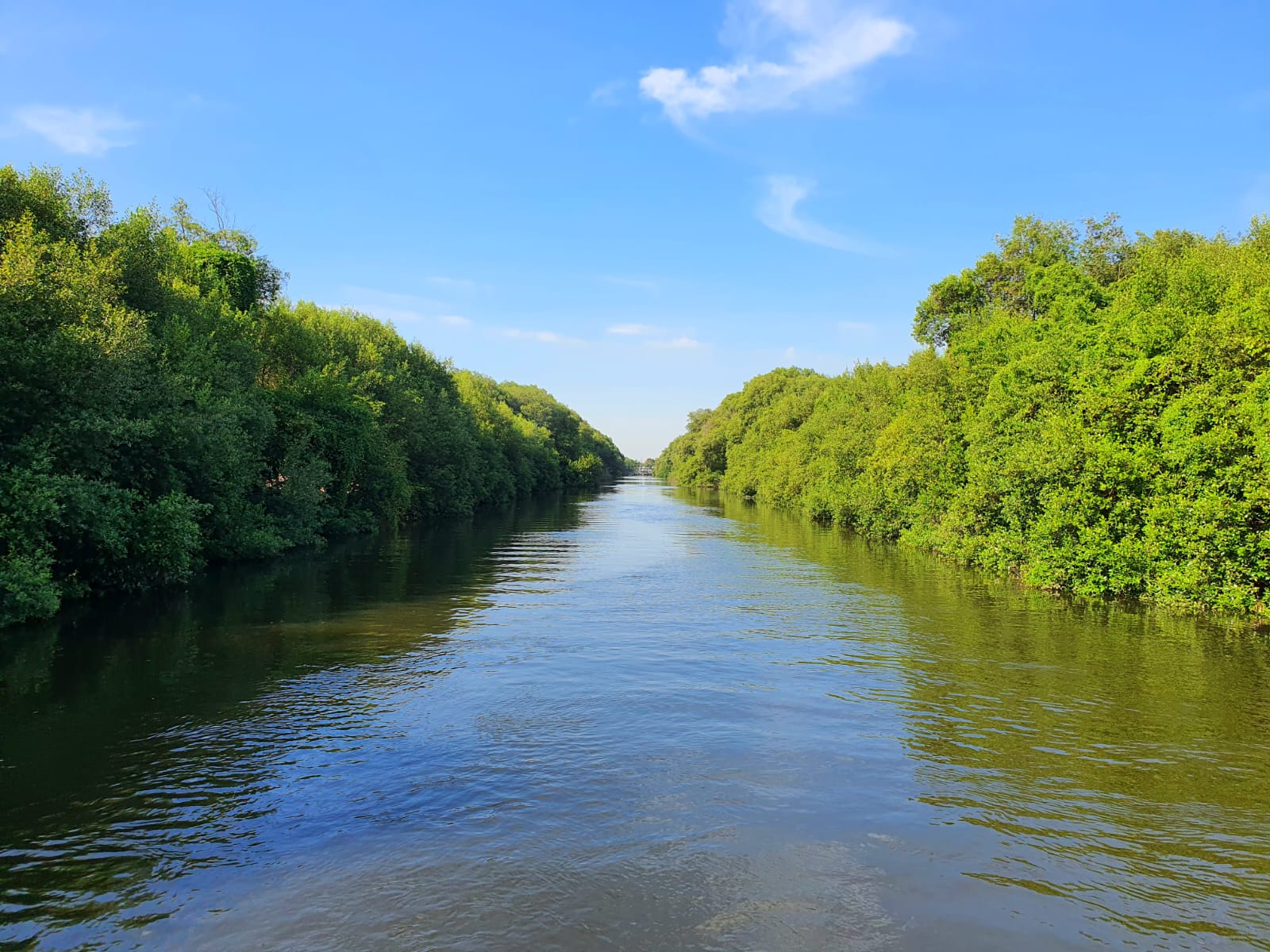
Indonesian Carbon Market: Hope or Hype?
In a commentary published by the Centre for Strategic and International Studies Indonesia, we examined challenges facing Indonesia’s carbon market, including non-optimal price discovery and carbon budget scarcity, as well as corrective measures to address these issues and strengthen the effectiveness of the carbon market in reducing the country’s emissions
JUST ENERGY TRANSITION
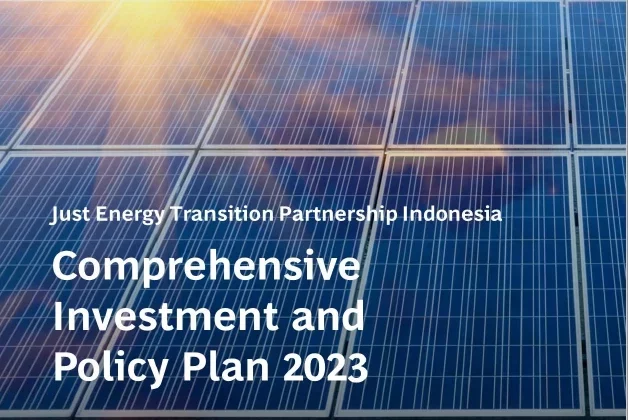
Highlights from Indonesia’s JETP Comprehensive Investment and Policy Plan
CPI supported the Finance Working Group’s input to the CIPP and provided editorial support to the JETP Secretariat for its publication, which was launched in November 2023. This work gave us important insight into the plan’s progress, barriers, and next steps.
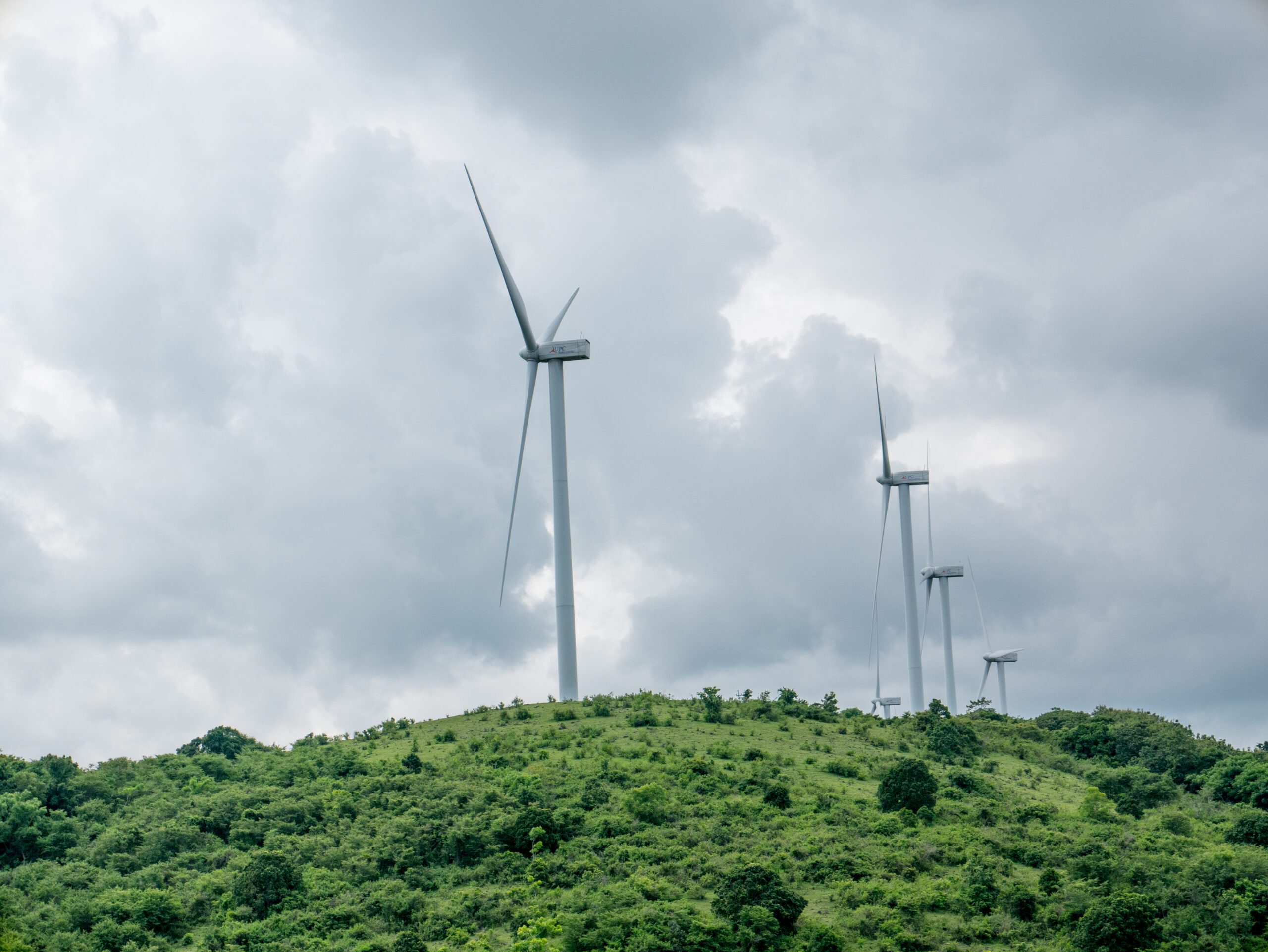
A Cautious Look at Indonesia’s JETP: A Glass Half Full
In this piece, featured in the Lowy Institute’s The Interpreter, CPI Indonesia Director Tiza Mafira shared her insights on the coordinated global responses required for Indonesia’s JETP to succeed
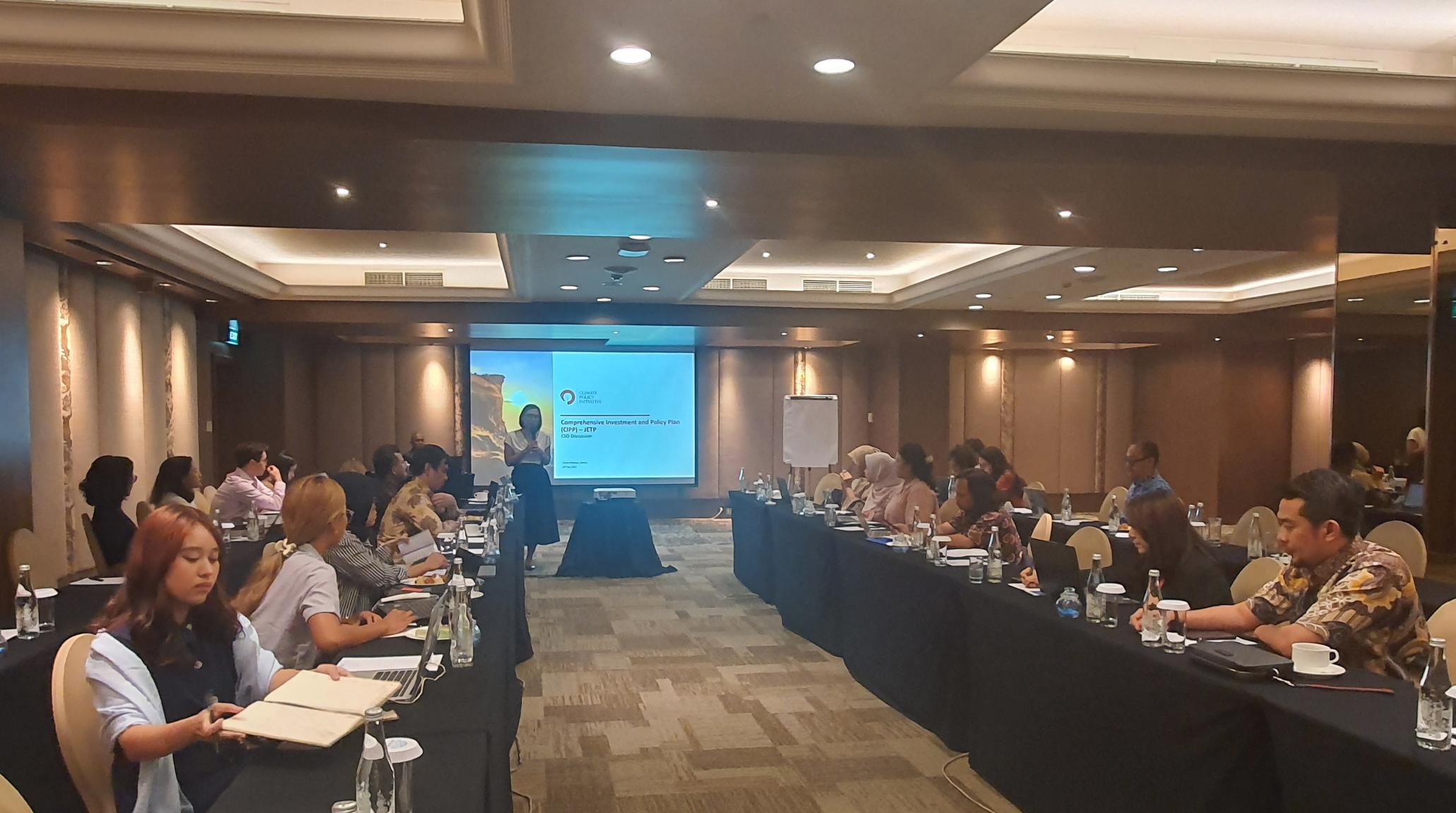
Capacity Building and Advisory Work
A series of workshops were conducted in 2023 to raise awareness of the JETP and foster dialogues between civil society organizations and government stakeholders to collectively shape just transition planning across Indonesia’s regions. To assess the readiness and capacity of rural communities in Eastern Indonesia specifically, we conducted preliminary studies in four villages, in East Nusa Tenggara (Mata Redi, Treweng, and Watukarere) and East Kalimantan (Muara Enggelam). Moreover, CPI Indonesia Director Tiza Mafira was recently appointed as a member of the Advisory Group for ClimateWorks Foundation’s Just Transition Fund. Firmly rooted in the just transition work across the Global South (South Africa, Vietnam, and Indonesia), this Fund aims to advance justice and equity principles in coal-to-renewable energy transitions.
What’s next for Yayasan CPI Indonesia?

In 2024, CPI Indonesia will continue its focus on creating an enabling environment for the net zero energy transition, along with the creation of a sustainable banking hub to optimize mobilization of related finance.
To support these two key workstreams, we will conduct studies on:
- Industrial decarbonization (solar investment, renewable energy supply chain, and green hydrogen),
- The greening of electricity transmission and distribution grids,
- The mainstreaming of taxonomies for sustainable finance, and
- Transition planning for financial institutions, in our role as a knowledge partner of GFANZ’s APAC Southeast Asia Public Policy Engagement Workstream.
CPI Indonesia will also organize multistakeholder dialogues and produce research papers, op-eds, and podcasts as part of our upcoming Climate Finance and Economics Program, which aims to provide the government with policy recommendations on the use of scarce public funds to leverage private capital for a climate-aligned energy transition.
We would love to hear from you on your top priorities for 2024. You can also stay informed on CPI research, events, and other important updates by subscribing to our newsletter below.

